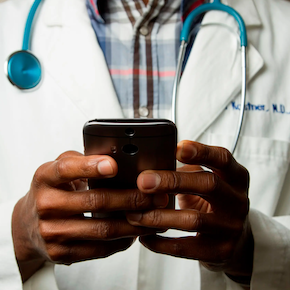News
Podcast
Diabetes Dialogue: Patient Considerations for Inhaled Insulin, with Carol Levy, MD
Author(s):
Carol Levy, MD, discusses INHALE-3 trial and how to incorporate individual patient-level factors into the management of patients with type 1 diabetes who could benefit from inhaled insulin.
In this special edition of Diabetes Dialogue: Technology, Therapeutics, & Real-World Perspectives recorded at the 84th American Diabetes Association Scientific Sessions, Carol Levy, MD, director of the Mount Sinai Diabetes Center and Type 1 Diabetes Clinical Research, joins the podcast for a deep dive into the INHALE-3 trial and how to incorporate individual patient-level factors into the management strategy of patients with type 1 diabetes who could benefit from inhaled insulin (Afrezza).
Their second on-site episode focused on the INHALE-3 trial, hosts Diana Isaacs, PharmD, an endocrine clinical pharmacist, director of Education and Training in Diabetes Technology, and codirector of Endocrine Disorders in Pregnancy at the Cleveland Clinic, and Natalie Bellini, DNP, program director of Diabetes Technology at University Hospitals Diabetes and Metabolic Care Center, begin the conversation by focusing on the differences in safety and efficacy observed with use of inhaled insulin seen among those using automated insulin delivery (AID) systems relative to their counterparts using multiple daily injections (MDI). Later in the episode, the focus of discussion shifts to the potential of inhaled insulin in optimizing diabetes management among pregnant patients with type 1 diabetes.
INHALE-3 and Inhaled Insulin, with Carol Levy, MD
The phase 4 INHALE-3 was designed to assess the efficacy and safety of inhaled insulin plus degludec insulin against standard of care in patients with type 1 diabetes. Conducted at 19 centers in the US, the trial, which leveraged a 17-week randomized period and a 13-week extension period, randomized 123 adult patients to inhaled insulin plus degludec insulin or usual care.
In the trial, 48% of patients were using AID and 44% were using MDI. Among the 59 patients using AID system, 39 used the Control-IQ, 17 used the Omnipod 5, and 3 used the MiniMed 780G.
Results indicated 30% of the inhaled insulin group and 17% of the usual care group achieved an HbA1c less than 7% at week 17. Among participants with an HbA1c level of 7% or greater at baseline, 21% of the inhaled insulin cohort achieved the HbA1c goal of less than 7%. Of note, 0 patients in the usual care group meeting these criteria achieved an HbA1c goal of less than 7%.
Further analysis suggested 24% of the inhaled insulin group achieved time in range greater than 70% relative to 13% of the usual care group, with no increase hypoglycemia for those receiving inhaled insulin.
For more on the trial, check out our on-site episode with Grazia Aleppo, MD, professor of Medicine and director of the Diabetes Center at Northwestern University, from ADA 2024.
Relevant disclosures for Levy include Sequel, Eli Lilly and Company, Tandem Diabetes, and Dexcom. Relevant disclosures for Bellini include Abbott Diabetes Care, MannKind, Provention Bio, and others. Relevant disclosures for Isaacs include Eli Lilly and Company, Novo Nordisk, Sanofi, Abbott Diabetes Care, Dexcom, Medtronic, and others.
References:
- Hirsh I. The Efficacy and Safety of Inhaled Insulin Used with Insulin Degludec Compared with Automated Insulin Delivery or Multiple Daily Insulin Injections in Adults with Type 1 Diabetes—Results of the INHALE-3 Randomized Trial. Presented at: American Diabetes Association (ADA) 84th Scientific Sessions. June 21 - 24, 2024. Orlando, FL.
- MannKind Corporation. Inhale-3 study reveals positive readout in head-to-head comparison of inhaled insulin vs. usual care in T1D; new data presented at American Diabetes Association’s 84th scientific sessions. MannKind Corporation. June 22, 2024. Accessed June 30, 2024. https://investors.mannkindcorp.com/news-releases/news-release-details/inhale-3-study-reveals-positive-readout-head-head-comparison.





